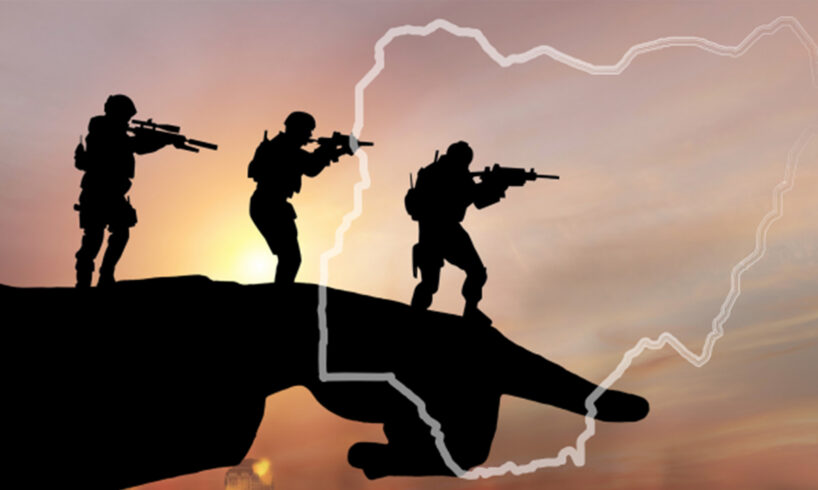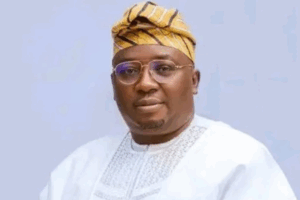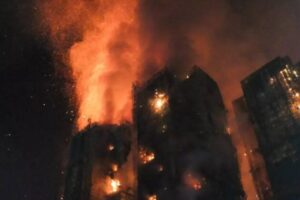
Despite receiving some of the highest security budgets in Africa, Nigeria remains one of the most unsafe places on the continent. Banditry, terrorism, kidnappings, and herdsmen violence have become part of daily life, even as security votes, funds meant to enhance safety, balloon unchecked at all levels of government. This contradiction raises fundamental questions about leadership priorities, corruption, and the real intent behind the nation’s so-called war against insecurity.
From President Olusegun Obasanjo’s era, when armed robbery dominated the headlines, through the militancy of Umaru Musa Yar’Adua’s years, to Goodluck Jonathan’s bruising battle with Boko Haram, Nigeria’s security landscape has evolved from crisis to catastrophe. Under Muhammadu Buhari’s administration, despite unprecedented security allocations, the nation entered a darker age of terror: schoolchildren abducted en masse, highways transformed into death traps, and entire communities displaced by bandits and insurgents.
Now, under President Bola Tinubu’s administration, insecurity remains rampant, even with massive state and federal investments. Kidnappings in Kaduna, bloodshed in Benue, killings in Plateau, and violent crimes in the South East and South South reflect a nation where security is more of a slogan than a deliverable. Recent attacks in Zamfara and Sokoto in June 2025, resulting in over 70 deaths and dozens abducted, underscore the terrifying status quo.
Yet, according to Transparency International, Nigerian government entities, from the presidency to local governments, spend over $670 million (about N980bn) yearly on security votes. These are off-budget allocations not subject to legislative oversight or auditing, essentially undisclosed funds for security-related expenses. Of Nigeria’s 36 states, 29 routinely allocate significant amounts to these votes. The Federal Government adds an average of $50 million yearly, while if each of Nigeria’s 774 local governments receives just $55,000 yearly, that is $42.6 million more in secretive spending.
This means that in one year, Nigeria could be spending nearly N1 trillion on security votes alone. This figure is apart from the N1.54 trillion defence allocation in the 2024 federal budget, the highest in history, outpacing every administration before it. In comparison, the Jonathan administration averaged N181.2 billion per year on security, Yar’Adua N454.9 billion, and Obasanjo N101.9 billion.
SB Morgen Intelligence, a Nigerian risk consultancy, estimated that between 2016 and 2020, over $11 million was paid in ransoms alone. The International Committee of the Red Cross (ICRC) still tracks 23,000 missing persons in Nigeria, the highest in any single country it operates in. The 2023 Global Terrorism Index ranks Nigeria as the fourth most terrorised nation in the world, after Afghanistan, Iraq, and Somalia.
Clearly, money alone does not buy security, especially when that money disappears into black holes of corruption, political patronage, and incompetence.
One of the core issues is the absence of a legal or constitutional basis for security votes. They are not governed by any statute, nor are they audited. While proponents argue that these funds are vital for swift response in volatile situations and for supplementing under-resourced security agencies, the lack of transparency has made them synonymous with secret/undisclosed funds and political manipulation.
Unfortunately, these billions have done little to improve Nigeria’s security infrastructure. The Nigerian Police Force is still ill-equipped to carry out basic forensic work. Crime scene investigation is rudimentary at best. Intelligence gathering remains disjointed and often politically compromised. Technology-driven security tools are largely absent in both urban and rural policing.
The economic cost of this insecurity is staggering. In 2020, the cost was estimated at 2.5 per cent of Nigeria’s GDP, about N8,811.9 per citizen. In 1999, this was just N26.8 per head, showing how the threat has increased over two decades. The price is not just economic but also social, with millions displaced and entire regions economically crippled due to unrest.
Of a necessity, there must be urgent legislative reform to regulate and make transparent all security expenditures. Every naira allocated to security, whether as budgeted funds or security votes, must be tracked, audited, and subject to the same financial discipline as every other public fund. States and LGAs should be required to report and justify security vote disbursements publicly, perhaps under a reformed Fiscal Responsibility Act.
Nigeria must invest in capacity-building for security agencies, not just in weapons but in training, technology, and forensic investigation tools. The Nigerian Police, in particular, needs an overhaul; its personnel must be equipped not just to react but to prevent and investigate crime with intelligence and professionalism.
Also, as the Doyin Salami-led Presidential Economic Advisory Council once rightly observed, security must be linked to broader governance and socio-economic reforms. Mass unemployment, out-of-school children (currently over 10m), and poor access to education in underserved areas provide a recruitment base for insurgents and bandits. Enforcing compulsory basic education and opening dialogue to address historical grievances can help shrink the pipeline of future insecurity.
Above all, the government must rebuild public trust. Citizens must see that the taxes they pay and the votes they cast are being used to protect them, not to enrich a few in power. Security is not a privilege; it is a constitutional right.
Nigeria cannot continue down this road of senseless violence and unchecked security spending. The time has come to demand accountability, efficiency, and reform. The future of the country depends not just on how much we spend on security, but on how wisely and transparently we spend it.




